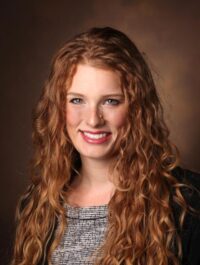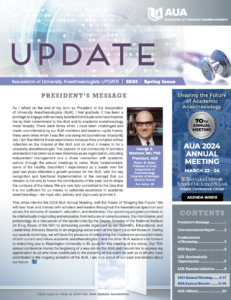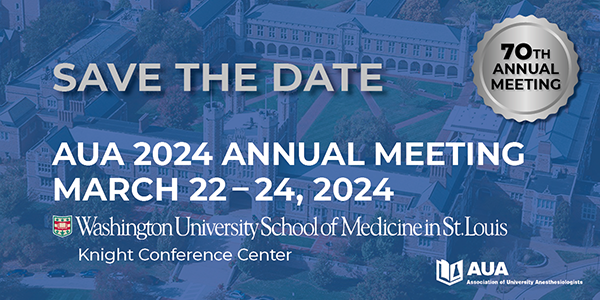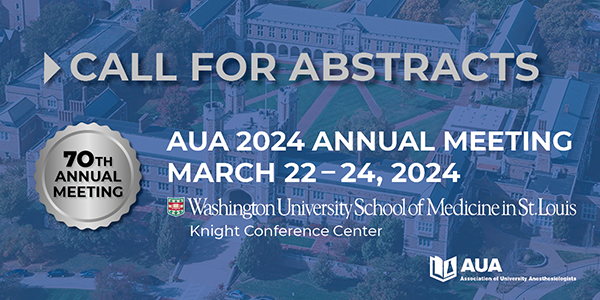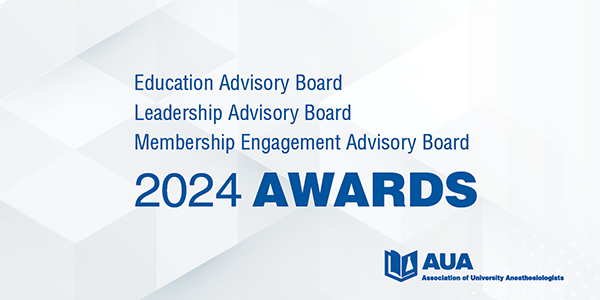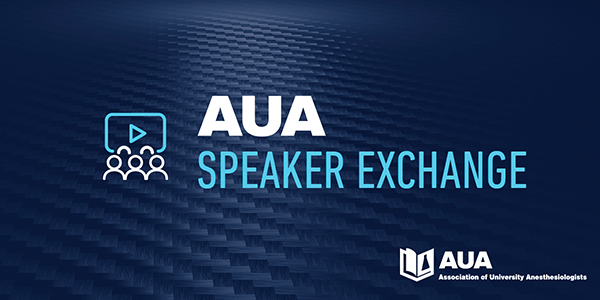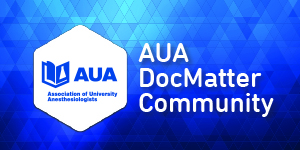AUA Hosts First Mock Study Section at Annual Meeting 2023
On Thursday afternoon, as attendees of the 2023 AUA Annual Conference were mingling or preparing for the President’s Reception, a group of early career faculty and senior AUA mentors were engaged in an exciting inaugural event—a mock study section. The program was spearheaded by Dr. Jamie Privratsky with help from Dr. Michael Andreae.
The idea was hatched during an AUA SAB discussion on ways to improve training and engagement of younger investigators. Jamie was inspired by his own experience serving on an NIH study section through the Early Career Reviewer Program. “It was eye opening to me, quite different than expected,” he recalls. “I feel like you write grants differently when you know how they are reviewed. I felt it would be valuable for other people to see.” The initial study section was planned for 2022 and unfortunately was cancelled when the AUA conference transitioned to virtual due to COVID-19. Having completed the initial groundwork and received a great deal of enthusiasm for the idea, Privratsky decided to submit it as a panel for AUA 2023.
The event required a large collaborative effort. Successful anesthesiology researchers graciously offered previous grant applications to be reviewed by the mock study section. Grant reviewers consisted of early career investigators from the AUA and Early-Stage Anesthesiology Scholars (eSAS), an organization that provides mentorship, networking, fellowship, and support for early investigators across the country. Scholars were paired with experienced senior mentors who generously donated their time to read the grants and help the early investigators construct their feedback and review. Privratsky made an effort to match mentors and mentees by area of research and interests, providing a valuable networking connection in addition to the educational experience of grant review. The mentors and mentees met virtually, prior to attending the meeting, to complete the grant review based on NIH scoring criteria. In my case, my mentor offered guidance virtually from San Francisco while I was in Nashville through Zoom, emails, and phone calls.
The in-person session began with an overview of the grant review process including valuable insight and pearls of wisdom from National Institute of Neurological Disorders and Stroke program officer Natalia Strunnikova, PhD, MHS. The group then split into two rooms, one to review R awards and another for K awards. Study section chairs, Drs. Michael Andreae and Eric Gross, led the discussion for each of their respective panels. Each panel consisted of six early investigators who reviewed one of two grants (two grants total per study section). Each grant had a primary and two secondary reviewers. At the end of the review, the remaining reviewers and those in attendance were encouraged to ask questions, discuss the grant, and then provide a final score.
Overall, the study section was an amazing success. It provided early investigators the unique opportunity to connect through mentorship, review real grants generously submitted by anesthesiology researchers, and experience the review process. The early investigators unanimously agreed that the opportunity to spend time in a reviewer’s shoes was eye opening and led to a better understanding of engaging in the process in the future. As we seek to foster a supportive community that encourages anesthesiologists to pursue research and academic anesthesiology, events like the mock study section provide an unparalleled opportunity to make a daunting task feel more manageable while allowing attendees to foster connections and learn from one another. Congratulations to all involved on such a successful pilot of this event!
For more information on the Early Career Reviewer Program including eligibility and application, we encourage you to visit https://public.csr.nih.gov/ForReviewers/BecomeAReviewer/ECR.
